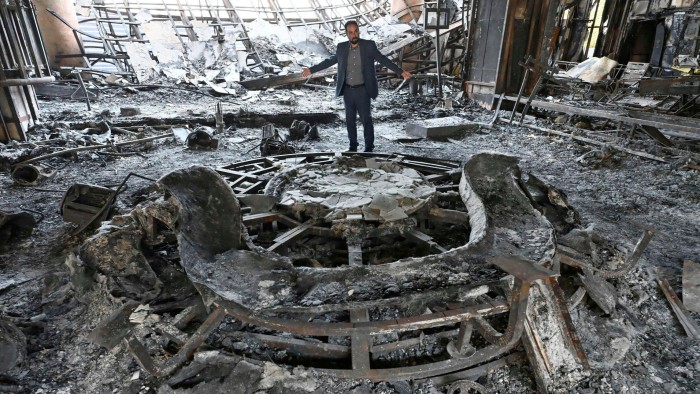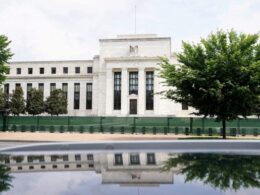Since their war in Iran, Benjamin Netanyahu and Donald Trump have repeatedly floated the next item on their agenda to reshape the Middle East: rapprochement between Israel and Arab countries.
“Leave it to me, how to deal with Saudi [Arabia] and peace with others,” the Israeli prime minister, who before Hamas’s October 7 2023 attack and the war in Gaza appeared to be closing in on a historic normalisation deal with Riyadh, told local media last week. “Believe me, not only have I thought about it, I’m thinking about it.”
Yet, with Saudi Arabia at least, it’s no longer clear he has a willing partner. The kingdom’s calculations have changed dramatically since October 7, as Crown Prince Mohammed bin Salman responded with outrage to Israel’s war in Gaza and accelerated a reconciliation with Iran, a historic rival.
Observers say Israel’s assault on the Islamic republic leaves Saudi Arabia even more wary of a country they see as an increasingly militaristic and destabilising force, and the kingdom has since the war taken public steps to shore up relations with Tehran.
“The Gulf states will maintain their rapprochement with Iran. It’s a wise policy to have with your biggest neighbour across the Gulf,” said a person familiar with the Saudi government’s thinking. “But it makes normalisation with Israel less likely, and it makes Saudi Arabia more determined to get its points on the Palestinian file.”
Hasan Alhasan, Bahrain-based senior fellow for Middle East policy at the International Institute for Strategic Studies, said “the reputational cost for Saudi Arabia [of normalisation with Israel] would now be much higher. Both domestically and for its regional and Islamic leadership credentials.”
Prince Mohammed’s pre-October 7 plans to establish diplomatic relations with Israel, in return for an American defence treaty, would have marked a historic reordering of the Middle East.
During Trump’s first administration as US president, the UAE and Bahrain normalised relations with Israel in 2020 under the so-called Abraham Accords. But a deal with Saudi Arabia — a leader of the Islamic world, and long-standing advocate for the Palestinian cause — would have been a major win for Israel.
That all changed after October 7. Prince Mohammed has repeatedly called Israel’s furious offensive in Gaza a “genocide”, and Gulf officials have worried that images of the destruction would radicalise a new generation.
The war would make normalisation extremely unpopular among young Saudis — on whom the crown prince has focused his economic transformation plans — and Prince Mohammed has demanded that any such move first require a ceasefire and concrete steps towards the creation of a Palestinian state.
With war rippling across the region, Saudi Arabia also doubled down on its ties with Iran.
The Sunni kingdom and Shia republic for years had hostile relations, with Riyadh seeing Iranian proxy forces in countries like Lebanon and Yemen as a major source of instability.
But it decided to change strategy in part following what it saw as a lukewarm US response to attacks on Gulf energy infrastructure in 2019 that it blamed on Tehran, restoring relations with Iran in March 2023.
Prince Mohammed and Iranian President Masoud Pezeshkian have since spoken regularly by phone, with other high-level officials routinely engaging, as the kingdom feared becoming caught up in a broader regional conflagration.

Saudi Arabia condemned Israel’s attacks, and the kingdom’s defence minister Prince Khalid bin Salman spoke to the new Iranian armed forces chief of staff Abdolrahim Mousavi on Sunday to discuss “efforts to maintain security and stability”.
For Saudi Arabia, Israel’s weakening of Iran — and of its regional proxies like Hizbollah — makes Tehran less of a threat even if it has stoked concerns the Islamic republic is more likely to pursue a nuclear deterrent than before.
“The Iran of 2022 . . . is not the Iran of 2025,” said Gregory Gause, a visiting scholar at the Middle East Institute in Washington. By contrast, “the victorious Israel of 2025 looks to be a destabilising element of politics across the region”.
Steps towards normalisation with Israel would buy Saudi Arabia political favour with Washington, and Trump has made no secret of his “dream” that the kingdom join the Abraham Accords. “It’s going to be something special,” he said on a visit to Riyadh in May.
The US president recently told Fox News he believed more countries could join the Abraham Accords following the war. “I think we’re going to start loading them up, because Iran was the primary problem,” he said.
But Israeli officials believe an easier and quicker deal than full normalisation between Israel and states like Saudi Arabia could be a narrower, “non-belligerence” security agreement with neighbouring Syria, under its new government led by Ahmed al-Sharaa.
Indeed, some analysts argue Saudi Arabia and other Gulf countries are betting on another way to keep Trump happy: money. During the president’s trip to the region in May, Gulf countries pledged trillions of dollars in investment, something that they hope will strengthen ties and gain them access to American AI technology and advanced weapons.
“The Saudis, unlike Trump, aren’t under the same time pressure” to strike a deal, said Alhasan. “Despite their anxieties . . . I think they are in a sufficiently comfortable geopolitical position not to have to succumb to doing something that they wouldn’t want to do”.
Additional reporting by Andrew England in London and Neri Zilber in Tel Aviv
Source link









